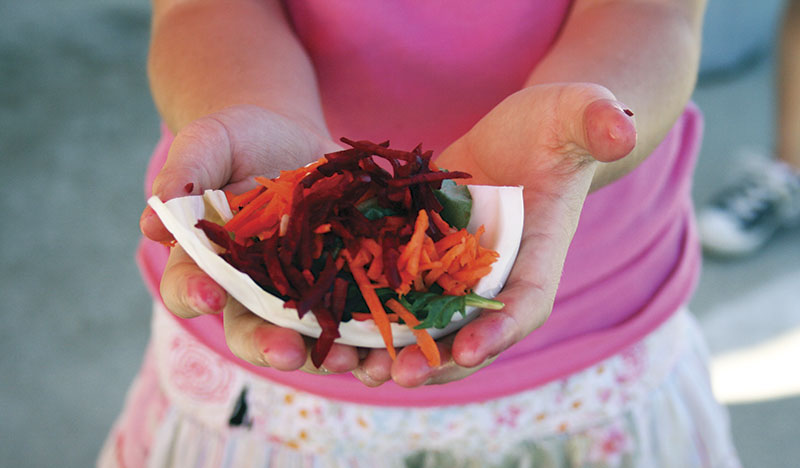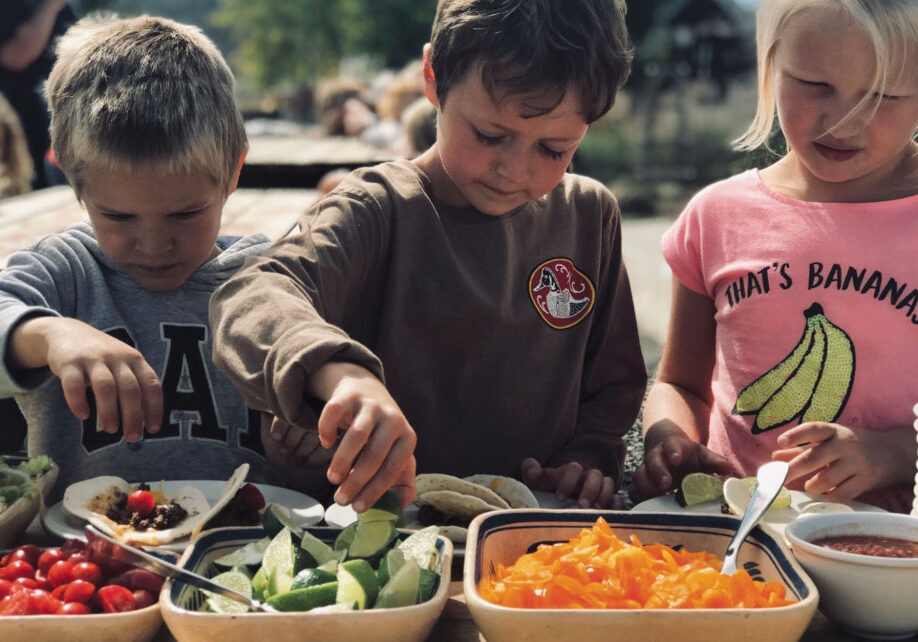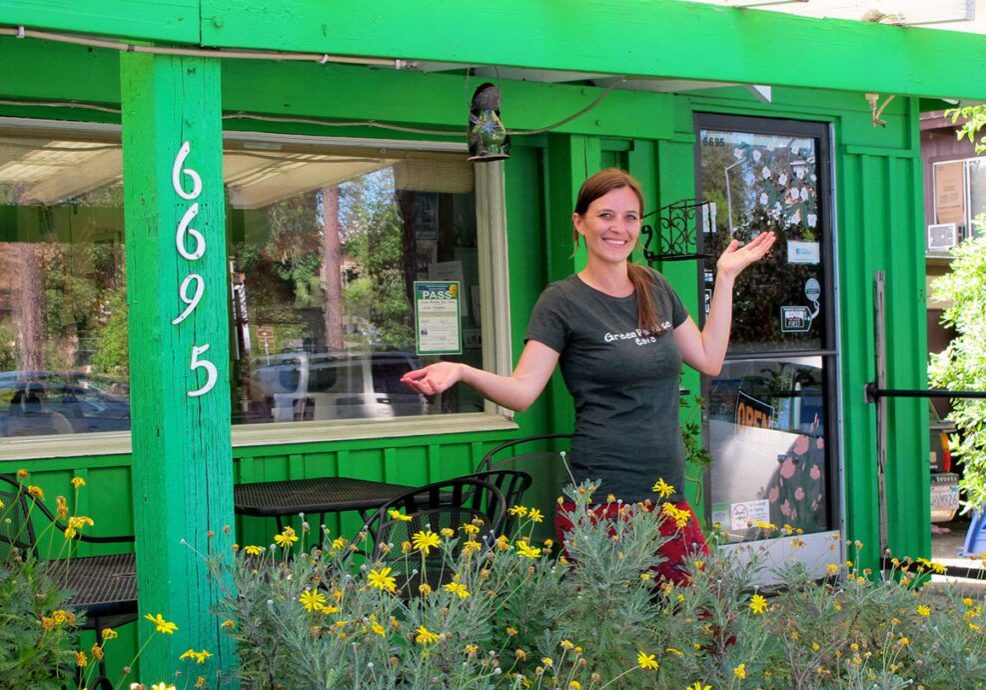 Establishing healthy eating habits early in a child’s life is crucial to growing a healthy body and fostering a respect for nature’s best preventative medicine. As a nutrition consultant and educator, the most common question parents ask me is how to get their children to make healthy food choices. Here are three tips to help get you started.
Establishing healthy eating habits early in a child’s life is crucial to growing a healthy body and fostering a respect for nature’s best preventative medicine. As a nutrition consultant and educator, the most common question parents ask me is how to get their children to make healthy food choices. Here are three tips to help get you started.
1. Start at the Beginning.
When introducing solids to your infant, wait until your child is 6-7 months old to ensure his or her digestive tract has developed enough to digest the food. Introduce foods one at a time to help monitor any potential allergic reactions.
Prepared baby foods can be purchased, but to make sure your baby is getting the best nutrition, buy organic produce and make it yourself with a blender.
Making Homemade Baby Food: Great foods to start with are carrots, sweet potato, winter squash, apples and pears. Place cut pieces of a selected vegetable or fruit into a steamer. Steam until tender; place items into a blender and puree with the water from the steamer (this returns a portion of nutrients lost in steaming). Avoid boiling foods, as more nutrients are lost through boiling than steaming. Avocados and bananas can be mashed without cooking.
Grains can be prepared homemade as healthier alternatives to traditional boxed infant cereals. Cynthia Lair, author of Feeding the Whole Family, shares great tips for making whole-grain cereal, recipes for baby foods, and delicious family recipes.
Portion pureed baby food into small glass containers. Refrigerate enough for a couple days, freeze the rest for later. Pureed food can be frozen in ice cube trays; once frozen, store cubes in an airtight container.

Photo by Tracey Hedge, Firefly Mobile Studios, http://www.firefly2u.com.
2. Healthy Snacks Make Healthy Children.
Often when a child is unsettled and can’t sit still, he’s hungry. Having nutritious snacks readily available to your children will help develop their taste for vegetables and other healthy foods. Offer fruits sparingly – as nutritious as they are, they contain a lot of sugar. Kids, like adults, require healthy fats and complete protein to function and maintain healthy blood sugar levels.
Think outside “the box” with snacks. While boxed foods like crackers are easy to give to your child, they’re a quick fix that will leave him needing more soon. Make sure your child is getting more than carbohydrates for snacks and meals, as carbs (i.e. crackers, pasta, bread) cause spikes in blood sugar, which can be a culprit in moody/cranky children.
Healthy Snack Ideas: Make sure snacks are complete (protein, fats & carbs). Tasty dips like hummus or avocado dip make eating vegetables more fun. Offer hard boiled eggs (provide an egg slicer for kids to slice their own eggs); organic whole-milk yogurt and berries; organic tortilla chips with guacamole; fruit slices with nut butters or cheese; wild salmon spread and crackers; or smoothies with protein powder and coconut milk.
3. Don’t fall prey to “kid food.”
This is a trap many parents fall into. Kid food (processed foods like mac & cheese, chicken nuggets, etc.) is typically junk food and is best avoided. This is where thinking outside “the box” comes into play. There is no reason that kids should not eat real, fresh food all the time.
Make one healthy meal for the whole family, rather than separate items for your child. Making all the decisions about what to eat is too much responsibility for a child. As a parent, you need to ensure your family is getting the nutrients their bodies require and to encourage your child to make healthy choices. Be okay with grumbling. Provide 3-5 different vegetables at dinner and have your child pick 2-3 to eat; this allows your child to feel he has some control over what he eats.
Sixteen-year-old Nick Tyra of Redding shares this advice instilled in him from childhood, “My parents taught me about food choices that are healthy and those that are not. They made me aware of the consequences of eating poorly; all of which have stuck with me.”
Getting a well-balanced diet into our children can be challenging, but it is a challenge worth every complaint, every tear and every triumph, and it is never too early (or too late) to start.
Posted in: Localicious
Comment Policy: All viewpoints are welcome, but comments should remain relevant. Personal attacks, profanity, and aggressive behavior are not allowed. No spam, advertising, or promoting of products/services. Please, only use your real name and limit the amount of links submitted in your comment.
You Might Also Like...

Farm School Learning Adventures
I had the pleasure of interviewing Niki Harris of California Heritage Farms for this month’s Localicious column. Niki and her husband Rich have been dreaming of developing a farm version […]

Localicious: TBar Pairs Fusion Cuisine and Refreshing Drinks for Cool Results
I was in the mood for something quick and light, so I headed over to Tea Bar and Fusion Café, aka “TBar.” It was lunchtime and the place was hopping. The […]
Localicious: Picnic Fun
Warm weather and delicious fresh foods make picnics a perfect summer outing while enjoying the beauty of nature! Getting together with family and friends in combination with a healthy meal […]

Localicious: Incredibly Edible Egg Mclovins Are Something To Cluck About
The 1980s jingle “I love eggs … from my head down to my legs …” runs through my head every time I crack one. In the past few months, I’ve […]
Localicious: Bees, Bees, Honey & More
Bees have been performing their pollinating duties millions of years – the oldest recorded bee fossil, embedded in amber, is dated at 100 million years. Native to Europe, Asia, and […]

Localicious: Fit Feasting Without the Fuss – How 3 North State Women Make Healthy Eating Easy For Busy Families
In a society ruled by the clock, Liza Wood, Michelle Cave and Jena Trzaskalski oppose the dichotomy of fast-and-easy food versus hearty-and-healthy meals. These creative, entrepreneurial women have instead found […]

